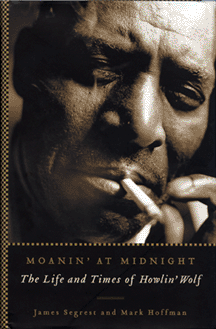
This book is about philosophy's relationship to and difference from other disciplines, such as history, maths, physics, and even poetry. The author demonstrates how philosophy - like history, but unlike physics - is reflexive. That is, one may write a history of history as well as a history of physics, but not a physics of physics.
From Publishers Weekly
Adler's central thesis, in this concise, lucid survey, is that philosophy not only ranks on a par with science as a means to knowledge, but also claims superiority over science in certain areas, for example, in telling us what ends we ought to pursue. The prolific author of Six Great Ideas equips the armchair thinker with a road map to Western philosophy's peaks, abysses and abiding questions as he underscores the pitfalls to be avoided, and fruits to be won, in pursuing four distinct philosophical realms--metaphysical, moral, objective (i.e., understanding of ideas) and categorical (understanding of subjects). Adler's approach ranges widely, moving from "disorders" of medieval thought to the modern "political illnesses" of nationalism, tribalism and xenophobia. This invigorating introduction to how philosophy works emphasizes the importance of philosophical introspection in the lives of ordinary men and women.
Copyright 1993 Reed Business Information, Inc.
From Library Journal
Adler's 53rd book is an introduction to such questions as "What is philosophy?" "What are its relations to other forms of thought?" and "What are the structures through which philosophical knowledge is derived and validated?" No new ground is covered, but Adler writes in a competent, nontechnical style that will be appreciated by the general reader, who is the most likely candidate for this book. Later sections of the text lean heavily on the topical outlines found in the multivolume Great Books of the Western World , published by Encyclopaedia Britannica. Readers unfamiliar with this collection, or with the supplementary materials accompanying it, may find Adler's text more accessible after examining the Great Books. For an alternative, readers should examine Thomas Nagel's What Does It All Mean?: A Very Short Introduction to Philosophy ( LJ 10/1/87).
- Terry Skeats, Bishop's Univ. Lib., Lennoxville, Quebec
Copyright 1993 Reed Business Information, Inc.
Macmillan Pub. Co., 1993 - 273 pages
In Greek and Roman antiquity, philosophy was supreme in the domain of learning. Philosophy was the name for the pursuit of truth about the most fundamental things to be known or understood. It was the most desirable of all the goods of the mind.
But today we live in an age dominated by science and technology - an age that has witnessed not only the rise of positivism, but the retreat of academic philosophy to an analysis of language. Professorial philosophy has become as specialized a subject as logic and mathematics. If anyone asks why we should be concerned with the intellectual respectability of philosophy, this book provides the answer.
Try to imagine a world from which philosophy is totally absent. Imagine a world in which no one philosophizes to any degree - that done almost unconsciously by ordinary men and women or inexpertly by scientists, historians, poets, novelists, and dramatists. Imagine a world in which philosophy is completely expunged. Philosophy is not taught, even poorly in our colleges. No philosophical books are written.
In the Prologue to this book, Dr. Adler asks us to consider whether that deprivation would make any difference to us. Though we might not realize it, a great many of our opinions and beliefs would go unquestioned; for any enlightenment about those beliefs can come only from philosophizing about them, about the shape of the world and our place in it: questions about what we should be doing and what we should be seeking; questions that are not answerable by empirical science and historical research.
What, then, are philosophy's four dimensions? Science gives us only partial knowledge and superficial understanding of the reality about which philosophy gives us a more penetrating analysis and a deeper understanding (Dimension One). Science gives us no knowledge or understanding of the good life and the good society. This moral and political philosophy gives us Dimension Two. Science gives us no understanding at all of the intelligible objects of thought - the great ideas (Dimension Three). It does not even enable us to understand science and history. This requires a philosophical understanding of all the intellectual disciplines and branches of learning (Dimension Four).
The Four Dimensions of Philosophy not only explains why philosophy must be revived in the coming century, but it also throws light on what must be done to revive it, by overcoming all the obstacles to be found in philosophy's long past.
Source:
Biography
Mortimer Jerome Adler (December 28, 1902 - June 28, 2001) was an American philosopher, educator, and popular author. As a philosopher he worked within the Aristotelian and Thomistic traditions. He lived for the longest stretches in New York City, Chicago, San Francisco, and San Mateo. He worked for Columbia University, the University of Chicago, Encyclopædia Britannica, and Adler's own Institute for Philosophical Research. Adler was married twice and had four children.
Born in New York, Mortimer Adler was educated at Columbia University. Later as a philosophy instructor there, he taught in a program focused on the intellectual foundations of Western civilization. Called to the University of Chicago in 1927 by President Robert Maynard Hutchins, Adler played a major role in renovating the undergraduate curriculum to center on the "great books." His philosophical interests committed to the dialectical method crystallized in a defense of neo-Thomism, but he never strayed far from concerns with education and other vital public issues. From 1942 to 1945, Adler was director of the Institute for Philosophical Research, based in San Francisco, California. Beginning in 1945 he served as associate editor of Great Books of the Western World series, and in 1952 he published Syntopicon, an analytic index of the great ideas in the great books. In 1966 he became director of the editorial planning for the fifteen edition of the Encyclopaedia Britannica, and in 1974, chairman of its editorial board. Adler has been devoted in recent years to expounding his interpretations of selected great ideas and to advocating his Paideia Proposal. That proposal would require that all students receive the same quantity and quality of education, which would concentrate on the study of the great ideas expressed in the great books, a study conducted by means of the dialectical method. Mortimer J. Adler died June 28, 2001 at his home in San Mateo, California at the age of 98.
Philosophical/Educational School of Thought
Mortimer Adler is Perennialist who believes that philosophy should become part of mainstream public school curriculum. He believes that education should be basically the same for everyone, because children�s �sameness as human beings...means that every child has all the distinguishing properties common to all members of the species.� (Paideia, p.43) In his Paideia Proposal, which sets out his vision for American public schools, Adler says that children must acquire three different types of knowledge: organized knowledge, intellectual skills, and understanding of ideas and values. For each of these types of knowledge, there is a different teaching style. Organized, or factual, knowledge is to be taught through lectures, intellectual skills are to be taught through coaching and supervised practice, and understanding of ideas and values are to be taught through the Socratic method of discussion and questioning.
Adler believes in liberal, non-specialized education without electives or vocational classes. For him, education should serve three purposes: to teach people how to use their leisure time well, to teach people to earn their living ethically, and to teach people to be responsible citizens in a democracy. He believes that each person has the innate ability to do these three things, and that education should above all prepare people to become lifelong learners. Education never ends, in his view -- age 60 is the earliest that anyone can claim to be truly �educated�, and only then if they have devoted their life to learning.
Philosophy and the arts are central to Adler�s educational vision. While he believes that every child should study math, science, history, geography, measurement, and other subjects in the lower grades, his plan for upper secondary school and college centers on students gaining insight into works of fiction, poetry, drama, art, and the like. This, way, Adler believes, students will gain an understanding of their own minds as well as the minds of others. Philosophy and art are for everyone, in his view. No one should be allowed to avoid them. College students, in Adler�s view, should be required to take a core of classes dealing with Western philosophy, politics, and religion. In short, everyone should be educated in the same way, towards an understanding of truth based on Western philosophy.
Importance to Education
Although Mortimer Adler has written a plan for all public schools in the United States, his ideas have had the most impact at the college level. During the 1920s and 1930s, Adler�s belief in the importance of Classical education led a significant number of American colleges and universities to adopt �Great Books� programs -- cores of required classes that focus on key works of Western philosophy and literature. Columbia University, Adler�s alma mater, adopted a form of this program that endures today: all undergraduates are required to take one year-long class in �Masterpieces of Western Literature� and one more year-long class in �Masterpieces of Contemporary Civilization�. In addition, students must take one semester in �Masterpieces of Western Art� and one semester in �Masterpieces of Western Music�. Many other colleges use some form of the Great Books program, inspired by Adler�s ideas.
In primary and secondary education, Adler�s ideas about great books of Western Philosophy seem to have influenced the education of prior generations more than the education of today�s children. Any literature curriculum that involved reading great works of Western literature and/or philosophy can be said to be influenced somewhat by Adler�s type of ideas.
Selected Publications by Mortimer Adler
Books
Dialectic (1927)
London, Kegan Paul, Trench Trubner and Co, Ltd., and New York, Harcourt, Brace and Company, Inc.
with Jerome Michael,
The Nature of Judicial Proof: An Inquiry into the Logical, Legal, and Empirical Aspects of the Law of Evidence (1931) New York, Columbia University Law School
with Maude Phelps Hutchins,
Diagrammatics (1932), New York, Random House, Inc., 1935
with Jerome Michael,
Crime, Law, and Social Science (1933), London, Kegan Paul, Trench Trubner and Co, Ltd., and New York, Harcourt, Brace and Company; reprinted with Introduction by Gilbert Geis, Montclair, N.J., Patterson Smith, (1971)
Art and Prudence: A Study in Practical Philosophy (1937), New York and Toronto, Longmans, Green and Co. Chapters 1-5; 12, reprinted with Introduction by Samuel Hazo as Poetry and Politics (1965) Pittsburgh, Pa., Duquense University Press
Aristotle for Everybody: Difficult Thought Made Easy (1978) New York, Macmillan Publishing Company; Bantam Books, 1980; Collier Books, 1991.
The Paideia Proposal: An Educational Manifesto (1982) (On Behalf of the Paideia Group) New York, Collier Books, Macmillan Publishing Company, 1982.
Articles
�The Human Equation in Dialiectic� Psyche 28 (April 1927), 68-82.
�An Analysis of the Kinds of Knowledge� May, 1935. (mimeograph)
�The Crisis in Contemporary Education� The Social Frontier V (February 1939),
140-145
�Are the Schools Doing their Job?� Town Meeting, Columbia University Press, 4(March 6, 1939), 11-16
�Education in Contemporary America� Better Schools, 2 (March-April 1940), 76-80.
�Progressive Education? No!� The Rotarian, September 1941, 29-30; 56-57
�The Great Books of 2066� Playboy, January 1966, 137; 224-226; 228
�The Joy of Learning� KNOW, 1 (1974), Chicago, Encyclopedia Britannica, Inc., 18-21
�The Disappearance of Culture� (My Turn), Newsweek, August 21, 1978, 15.
�Children Must by Taught how to Learn� Long Island Newsday, September 17, 1978.
�Revising American Education� The Commonwealth, LXXVII (December 19, 1983), The Commonwealth Club of San Francisco, California, 380-381, 384
�Is Philosophy Worthwhile?� (1993) William F. Buckley, Jr. interviews Mortimer Adler about The Four Dimensions of Philosophy. Firing Line videotape.
References
1. Online: Microsoft Encarta; July 7, 2000, �On Adler�
http://www.thegreatideas.org/adler.html
2. Online; Adler Archives; July 7, 2000, �Mortimer Adler -- A Biography�
http://www.radicalacademy.com/adlerbio.htm
3. Adler, Mortimer. The Paideia Proposal: An Educational Manifesto (1983) New York, MacMillan Publishing Co., Inc.
source: Margaret Farrand
Link:
http://www2.southeastern.edu/Academics/Faculty/nadams/educ692/Adler.html
The FOUR DIMENSIONS OF PHILOSOPHY: Mortimer J. Adler: 9780025005747: Amazon.com: Books













